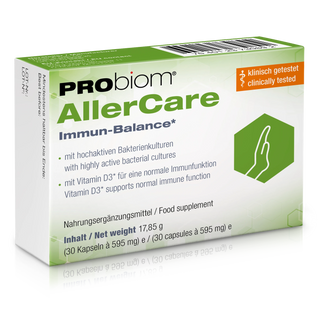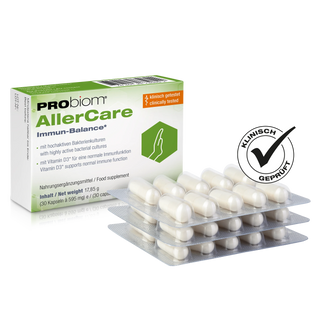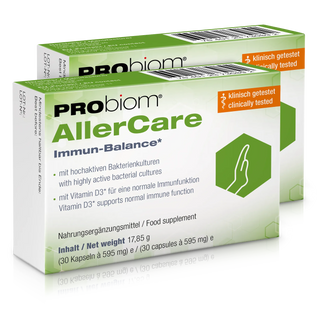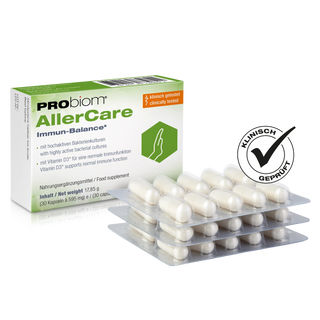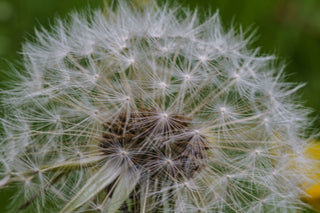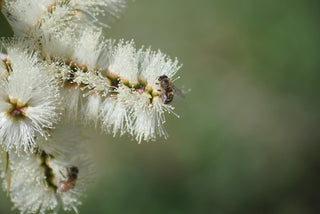Histamine intolerance is a problem that affects more and more people. Symptoms such as headaches, skin reactions, abdominal pain, or heart palpitations suddenly appear, often seemingly without any identifiable trigger. The search for the cause leads many sufferers to a surprising diagnosis: histamine intolerance. But what does this actually mean? And, more importantly, which foods should you absolutely avoid if you suffer from this intolerance?
In this article, we'll explore the basics of histamine intolerance, detail which foods are problematic, provide a clear table for orientation, and explain why probiotics might play a role. You'll also receive many practical tips and a detailed FAQ session at the end.
What is histamine and why is it important?
Histamine is a messenger substance in the body that fulfills a variety of functions. It is a so-called biogenic amine that is both ingested through food and produced in the body. Histamine regulates important processes:
-
Control of inflammatory reactions
-
Regulation of gastric acid production
-
Influence on the sleep-wake rhythm
-
Control of vascular permeability
Normally, the enzyme diamine oxidase (DAO) in the small intestine ensures that excess histamine is broken down. However, in people with histamine intolerance, this function is impaired – either because there is too little DAO or because histamine levels rise so sharply due to food and other factors that the breakdown is no longer sufficient.
How does histamine intolerance manifest itself?
Symptoms are diverse and range from mild to severe. Those affected report:
-
Digestive problems: diarrhea, flatulence, abdominal cramps
-
Skin reactions: itching, redness, hives
-
Headaches: up to migraines
-
Cardiovascular problems: rapid heartbeat, drop in blood pressure
-
Respiratory tract: blocked nose, asthma-like symptoms
Because the symptoms are very nonspecific, it often takes a long time to diagnose histamine intolerance. A food diary and targeted tests with a doctor can provide clarity.
Foods you should definitely avoid
The biggest problem with histamine intolerance is that histamine is present in many foods—especially those that are aged, fermented, or stored for a long time. Particularly critical are:
-
Mature cheese such as Parmesan, Emmental, Camembert or Brie
-
Smoked, cured or fermented meat products such as salami, ham or sausages
-
Fish, especially tuna, mackerel, sardines and herring – if not absolutely fresh
-
Alcoholic beverages, especially red wine, beer and sparkling wine
-
Sauerkraut and other fermented vegetables
-
Tomatoes, spinach, eggplant
-
Cocoa and dark chocolate
-
Vinegar, soy sauce and other fermented seasonings
These foods are rich in histamine or promote its release in the body. Foods that inhibit DAO breakdown (e.g., alcohol) are also problematic.
| category | Avoid at all costs | Better tolerated |
|---|---|---|
| Cheese | Mature varieties (Parmesan, Emmental, Brie) | Cream cheese, cottage cheese, mozzarella |
| Meat & Sausage | Smoked, cured, air-dried | Fresh meat, poultry |
| Fish & Seafood | Canned goods, smoked fish, long-stored | Fresh fish (prepared immediately) |
| Vegetables | Tomatoes, spinach, eggplant | Zucchini, cucumbers, carrots |
| Drinks | Red wine, beer, sparkling wine | Water, herbal tea |
| sweets | chocolate, cocoa | White chocolate (with caution) |
Why are these foods so problematic?
The cause is usually the ripening, fermentation, or storage process. Histamine levels increase over time. Fish is particularly sensitive: If it's not absolutely fresh, large amounts of histamine build up very quickly. Alcohol, in turn, has a dual effect: It inhibits the breakdown by DAO and also stimulates histamine release in the body.
Individual differences are important
Not everyone affected reacts the same way. While some develop symptoms after just one sip of red wine, others tolerate small amounts without problems. The combination of foods also plays a role: Those who consume several histamine-rich foods in one day are at higher risk of symptoms. Therefore, it's a good idea to keep a food diary to identify personal triggers.
The potential of probiotics in histamine intolerance
The role of the gut microbiome has received considerable attention in recent years. Probiotics—beneficial bacteria—can have a positive effect on the gut flora. However, the issue is complex when it comes to histamine intolerance.
Probiotics that can produce histamine
Some bacteria, such as Lactobacillus casei or Lactobacillus bulgaricus , are known to produce histamine themselves. Therefore, such strains are not suitable for people with histamine intolerance.
Probiotics that could help
Other bacterial species, including Lactobacillus paracasei, Bifidobacterium infantis , and Lactobacillus rhamnosus GG , appear to have a more positive effect. They support the intestinal barrier, modulate the immune system, and can help break down histamine in the intestines. Initial studies show that a targeted selection of probiotic strains could help alleviate symptoms.
However, there are no clear recommendations yet. Anyone who wants to try probiotics should do so in consultation with a doctor or nutritionist.
Practical everyday tips for histamine intolerance
In addition to avoiding problematic foods, small adjustments in everyday life can also help:
-
Prefer freshness: The fresher the food, the lower the histamine content.
-
Avoid leftovers: Reheated foods can contain more histamine.
-
Cook instead of raw: Some foods are better digestible when cooked.
-
Reduce stress: Stress can also release histamine in the body.
-
Check your medications: Some medications inhibit DAO. It's worth talking to your doctor about this.
Conclusion
Histamine intolerance is a challenge, but with the right diet and a conscious lifestyle, symptoms can be significantly reduced. It's especially important to avoid aged, fermented, and highly processed foods and favor fresh produce. Probiotics could be an interesting addition in the future—but choosing the right strains is crucial.
Those who consistently pay attention to their diet and observe their own reactions can significantly improve their quality of life and get the intolerance under control.
FAQ on histamine intolerance
Can histamine intolerance be cured?
No, not currently. But it can be controlled very well through diet and lifestyle.
Is chocolate allowed if you have histamine intolerance?
Dark chocolate is usually not tolerated. White chocolate contains less histamine, but should be tested carefully.
Does a DAO enzyme supplement help?
Yes, in some cases, replacing the enzyme can help. However, it doesn't work equally well for everyone.
Are probiotics useful?
Yes, but only certain strains. It's important to choose those that don't produce histamine.
Can stress worsen symptoms?
Definitely. Stress increases histamine release in the body and can worsen symptoms.
How do I find out my personal triggers?
A food diary is the best way to identify connections between foods and symptoms.
Are certain fruits allowed?
Many fruits are tolerable, but citrus fruits, strawberries and pineapples can be problematic.
Is histamine intolerance hereditary?
There is evidence of a genetic component, but environmental factors also usually play a major role.


